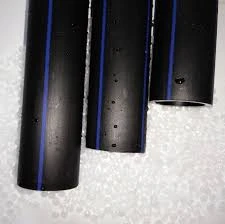okt . 01, 2024 21:29 Back to list
High-Density Polyethylene Pipes and Their Applications in Modern Infrastructure
The Benefits of High-Density Polyethylene (HDPE) Plastic Pipes
High-Density Polyethylene (HDPE) plastic pipes have gained immense popularity in various industries due to their unique properties and numerous advantages. These pipes, known for their durability and flexibility, are increasingly replacing traditional materials like PVC, metal, and concrete in various applications, including water supply, sewage, and gas distribution systems.
One of the primary benefits of HDPE pipes is their exceptional resistance to corrosion and chemical degradation. Unlike metal pipes that can rust or corrode over time, HDPE pipes remain intact even when exposed to harsh environmental conditions or aggressive substances. This characteristic extends their lifespan significantly, reducing the need for frequent replacements and maintenance. Therefore, investors in infrastructure can appreciate the cost savings over the long term.
The Benefits of High-Density Polyethylene (HDPE) Plastic Pipes
HDPE pipes also exhibit excellent hydraulic properties. The smooth interior surface reduces turbulence and friction loss, leading to increased flow efficiency. This quality makes HDPE pipes ideal for water and wastewater transport, allowing for the efficient movement of large volumes of fluid. Moreover, the resistance to scale and deposits minimizes maintenance needs, making HDPE a practical choice for utility companies.
hdpe plastic pipe

Furthermore, HDPE pipes are environmentally friendly. They are made from recyclable materials and can be recycled at the end of their life cycle. This property aligns with global trends towards sustainability and minimal environmental impact. In addition, the manufacturing process of HDPE pipes consumes less energy compared to other materials, contributing to a lower carbon footprint.
Safety is another critical aspect of HDPE pipes. They do not leach harmful chemicals into the transported fluids, making them a safe option for drinking water systems. This safety feature ensures that communities can rely on HDPE for potable water without the fear of chemical contamination.
Lastly, the versatility of HDPE allows it to be used in various applications, from residential plumbing to large-scale industrial projects. Its adaptability makes it suitable for an extensive range of industries, including agriculture, telecommunications, and construction.
In conclusion, High-Density Polyethylene plastic pipes offer a myriad of benefits, including corrosion resistance, flexibility, efficiency, environmental friendliness, and safety. As industries continue to seek reliable and sustainable materials for their infrastructure needs, HDPE pipes stand out as a logical choice, paving the way for a more efficient and eco-friendly future. Their continued adoption is likely to shape the landscape of piping solutions for years to come, benefiting both industries and communities alike.
-
High Transparency PVC Clear Sheet Super Transparency PVC Sheets & HDPE Cutting Board Supplier
NewsJul.04,2025
-
High-Quality PVC-M Pipe Supplier Trusted PVC Pipe Company & 75mm PVC Connection Pipe Solutions
NewsJul.04,2025
-
PVC Transparent Sheet Roll - Durable & Flexible PVC Plastic Sheet Roll for Industrial & Home Use
NewsJun.24,2025
-
High-Quality PVC PPR Pipes and Fittings Durable ERA PPR Solutions
NewsJun.10,2025
-
High-Quality Large HDPE Sheets & Large Diameter PVC Pipe Durable Large PVC Pipe Supplier
NewsJun.10,2025
-
High Density Polyethylene Cutting Board - Durable & Food Safe
NewsJun.09,2025

